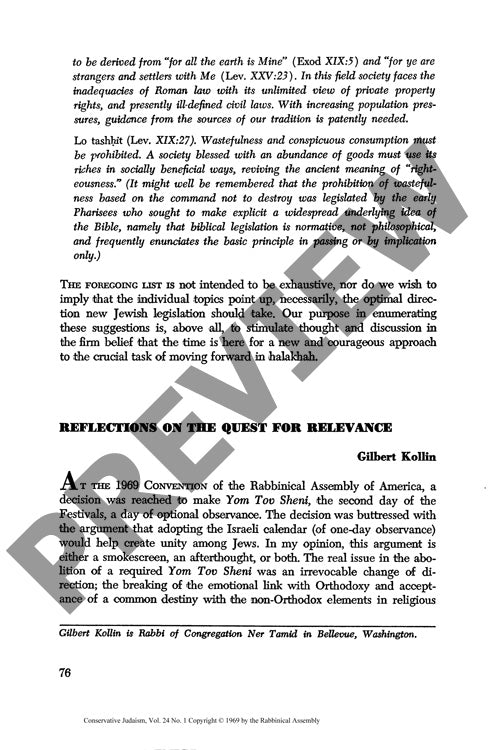Reflections on the Quest for Relevance
Couldn't load pickup availability
A pivotal 1969 decision by Conservative Judaism to make Yom Tov Sheni optional marked a watershed moment in modern Jewish religious authority, fundamentally reshaping how the movement interprets Divine will. Through analysis of Rabbinical Assembly proceedings and theological discourse, competing visions between traditionalist (bogdim) and progressive (mordim) factions emerge, revealing how their philosophical deadlock previously hindered institutional progress. The movement's break from "Orthopraxy" - the practice of maintaining Orthodox customs while harboring Reform theology - established an independent Conservative framework for halakhic interpretation distinct from both Orthodox and Reform approaches. Historical and theological examination demonstrates how this shift empowered Conservative rabbis to address contemporary Jewish behavioral standards more authentically, focusing their authority on congregational expertise rather than broader secular concerns. This decisive reformulation of halakhic process proves essential for Conservative Judaism's continued vitality and coherence as a religious movement capable of ensuring Jewish continuity through its distinctive theological understanding.

More Information
-
Physical Description
-
Publication Information
Published 1969
ISBN
-
Publication Credits
Gilbert Kollin

